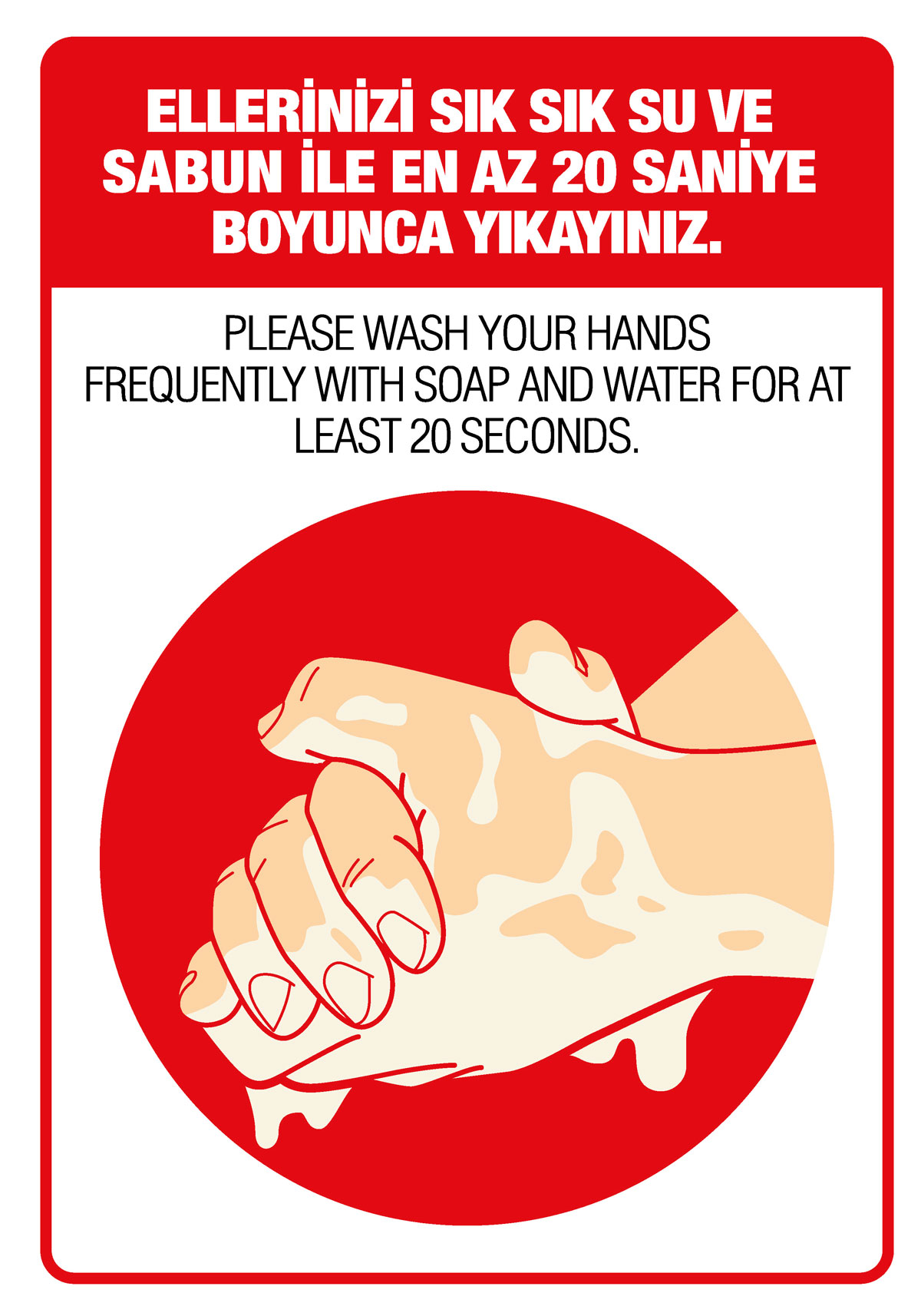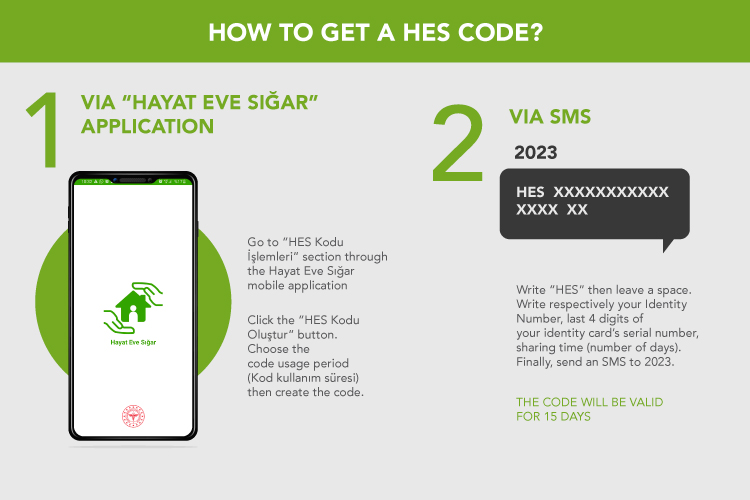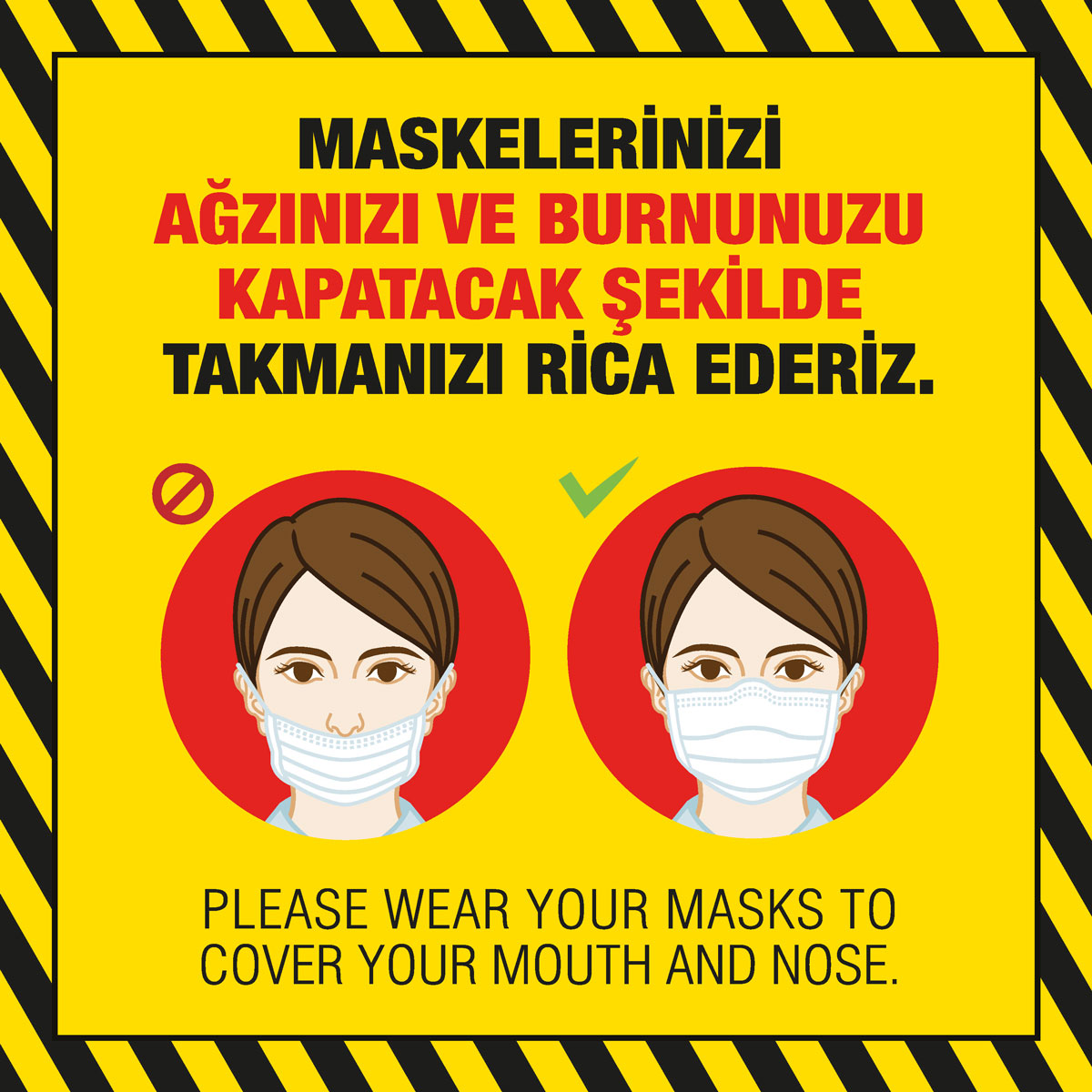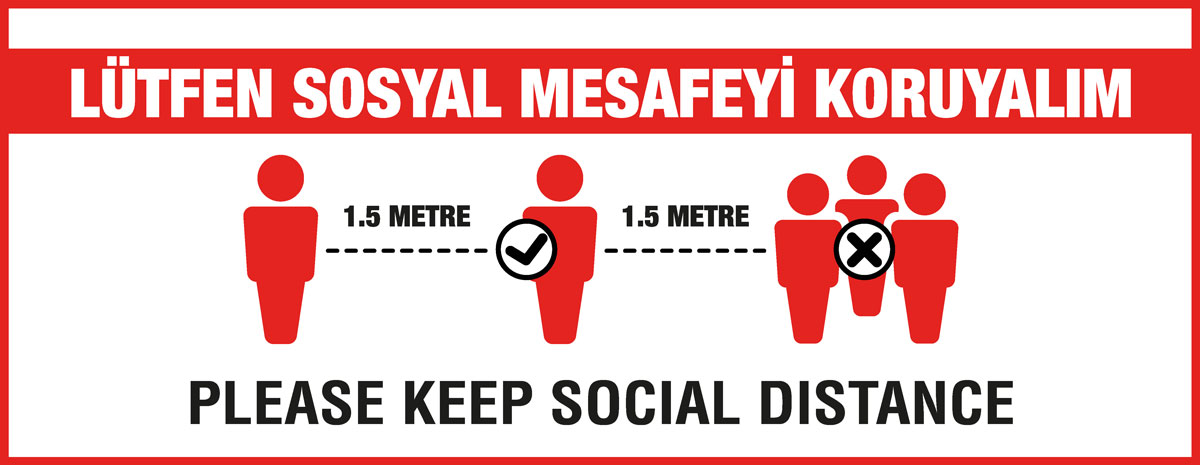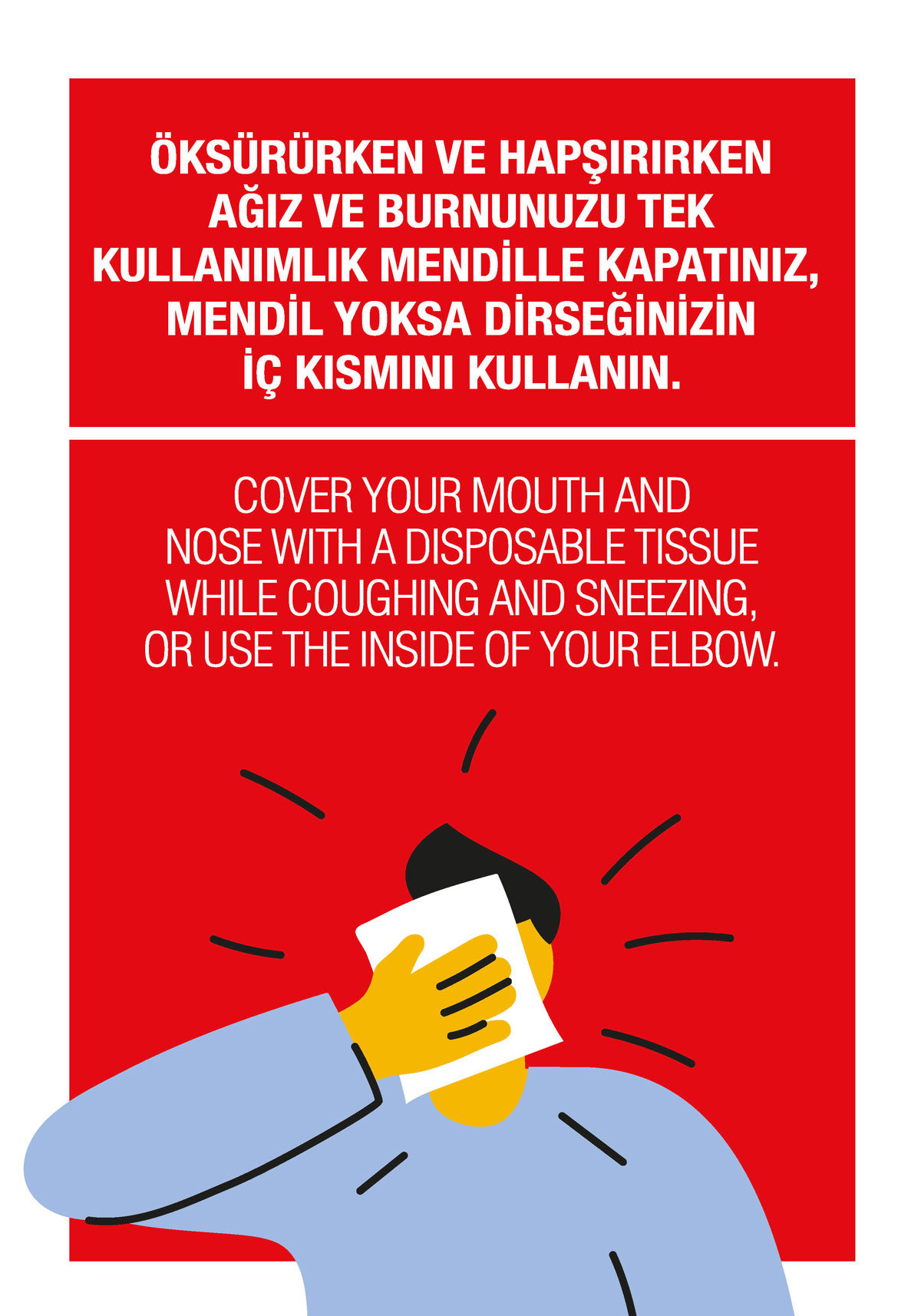Mode of Transmission and Epidemiology
The disease is transmitted through inhaling the respiratory secretions of patients, spread to the environment through sneezing, talking, coughing. Infection is developed when respiratory droplets in the air within 1-2 meters of the patient settle on the mouth, nose and eye tissues of sensitive people. Also, the disease is transmitted when the person who contacted the droplets of the patients and does not disinfect his/her hands before touching his/her face, nose or eye. Since the virus can be detected in the respiratory secretions of asymptomatic people, these people can also be contagious.
Clinical Features
Since it infects mainly respiratory system, the main symptoms of the infection are generally fever, cough and shortness of breath. Other than these the other sympoms are generally:
- Headache
- Sore Throat
- Nasal Flow
- Muscle and Joint Pain
- Weakness
- Loss of the Taste and Smell Perception
- Diarrhea
While some patients recover from the infection without symptoms, some patients might develop a more serious course of infection and might develop pneumonia, severe acute respiratory tract infection, kidney failure, and even death. The median time from symptom onset to clinical improvement in mild cases is approximately 2 weeks, and 3-6 weeks for severe or critical cases.
Wearing and Taking Off the Masks
Before wearing the mask and after taking it off, hands should be washed, if it is not possible, hand antiseptic should be used. While wearing the masks, it is important to wear them by holding the ropes, to be careful not to touch the inner and outer surfaces, not to touch the outer surface with the hand while wearing the mask, not to touch the face with the hand with or without the mask.
Wearing the mask only to cover the mouth and leaving nose and/or under the chin out of the masks, lowering masks under the chins, putting it on the arm, leaving it to the table and wearing it afterwards, then direct contact with the mouth and nose by taking the microbe from the chin, beard, arm surface or table where the inside of the mask may be infected with a virus, are the situations that increase the risk of transmission of the infection. In cases such as these, the masks will increase risk of getting infected rather than avoiding the disease. Masks lose their protective feature as they will get wet in case of long/loud talking, hot weather, physical activity, in this case, it would be appropriate to use a new mask. The mask should be changed when it becomes damp, soiled and after prolonged use.
The masks are not fully protected when used not “properly.” For correct mask use, the mask must fully cover the nose, mouth and chin, and the mask must fully contact the sides of the face. Wearing a mask is not a substitute for complying with the rules of "physical distance", "hand not touching the mouth, nose or eyes.
Those who are in “close contact” with the probable/definite case are followed for 10-14 days (follow the updated follow-up times according to the variant viruses on the Ministry of Health COVID-19 Information website).
Close contacts and definite cases which are surveyed from home or dormitories:
1. S/He should spend the follow-up period at home or in a dormitory, if possible, in a single room. He/she should wear a medical mask when sharing the same environment with another person(s).
2. In order to avoid the risk of contamination to the people living in the house/dormitory, they should sit in a different room from other people, if possible, in a well-ventilated room, stay at least 2 meters away from other people and wear a medical mask.
3. During the follow-up period, visitors should not be allowed to the same room in the house/dormitory.
4. The movement of the person at home/dormitory should be limited, common areas such as toilets and bathrooms should be disinfected with bleach and well ventilated.
5. They should not share their personal belongings with others, and should not share items such as glasses, plates, towels, if he needs to use it, he should wash these items with soap and water.
6. The clothes and textile products such as sheets and duvet covers should be washed with normal detergent at the highest temperature recommended by the manufacturer.
7. Bathrooms and toilets should be cleaned at least once a day with diluted bleach (1:100 in normal dilution). All surfaces that may be contaminated with respiratory secretions or body exudates of the patients should be cleaned with water and detergent after cleaning with diluted bleach (1:100 in normal dilution). When there is significant contamination on the surfaces, bleach is used by diluting 1:10.
Our Call Center (02124984141), is accessible to every outer call. Besides, we continue to answer the questions and make announcements via our social media channels (@ikuedu), our mail address (kidb@iku.edu.tr) and our cooperative WhatsApp line (05309184141).
The cleaning and disinfection processes of the common areas of our campuses and all surfaces with human contact continue starting from the campus entrances and are repeated throughout the day.
Starting from September 13, entering into campuses will not be allowed for the non-HES Code linked Istanbul Kültür University Identity Card.
You can execute the transaction via the Hayat Eve Sığar application or by filling in the necessary blanks in the https://hes.iku.edu.tr/login where you can log in with your UniPass information.
People who are diagnosed with COVID-19, the ones who carry the virus or the ones who are contacted to these people will not be allowed into campuses temporarily.
You can execute the transaction via the Hayat Eve Sığar application or by filling in the necessary blanks in the https://hes.iku.edu.tr/login where you can log in with your UniPass information.
Since immunity continues in people who have had covid-19 disease in the last 3 months, vaccination / PCR testing will not be required when entering campuses and dormitories. After the completion of the 3-months period, they are required to submit a vaccination status document or a PCR negative result at the entrance to the campus and dormitories.
In order to get your HES Code, visiting the address https://hayatevesigar.saglik.gov.tr/hes.html of the Ministry of Health is enough.
The common places in our dormitories, all surfaces open to human contact and the student rooms are being cleaned regularly by our staff and then disinfected against viruses. These processes are repeated during the day as needed.
People who will enter or leave the university campuses (Student, Administrative Staff-Academic Staff, visitors) must submit a vaccination card showing that they have had 2 doses of vaccine at least 14 days before or those who do not have a vaccination card must submit a PCR test twice a week.
People who will enter or leave the university campuses (Student, Administrative Staff-Academic Staff, visitors) must submit a PCR test twice a week.
People who will enter or leave the university campuses (Student, Administrative Staff-Academic Staff, visitors) can enter the campuses after at least 14 days after their second dose.



